Programme
Leoš Janáček
The Cunning Little Vixen, concert performance of the opera (110')
*Intermission 20 minutes after Act 2
In 2024 we will commemorate the 100th anniversary of the premiere of The Cunning Little Vixen, one of Leoš Janáček’s most beautiful stage works. Preparing the concert performance is Jakub Hrůša, who garnered superlatives from opera critics together with “the best Vixen of today”, soprano Elena Tsallagova, at the Glyndebourne Festival in 2016.
Subscription series A | Duration of the programme 2 hours 10 minutes
Leoš Janáček
The Cunning Little Vixen, concert performance of the opera (110')
*Intermission 20 minutes after Act 2
Elena Tsallagova the Vixen
Kateřina Kněžíková the FoxJan Martiník the Forester
Svatopluk Sem the Forester
Jarmila Vantuchová Lapák (a dog)Ondřej Koplík Schoolmaster / Mosquito
Jaroslav Březina Schoolmaster / Mosquito
Jiří Sulženko Parson / Badger
Jiří Brückler Harašta (a poacher)
Veronika Chamolová Chocholka (a hen) / Jay
Maria Kobielska Mrs Forester / Owl
Alžběta Vomáčková Woodpecker / Mrs Pásková
Petr Levíček Pásek
Amálie Motošická Rooster
Prague Philharmonic Children’s Choir
Jiří Chvála, Petr Louženský choirmaster
State Opera Chorus
Adolf Melichar choirmaster
Tomáš Ondřej Pilař artistic cooperation
Jakub Hrůša conductor
Czech Philharmonic
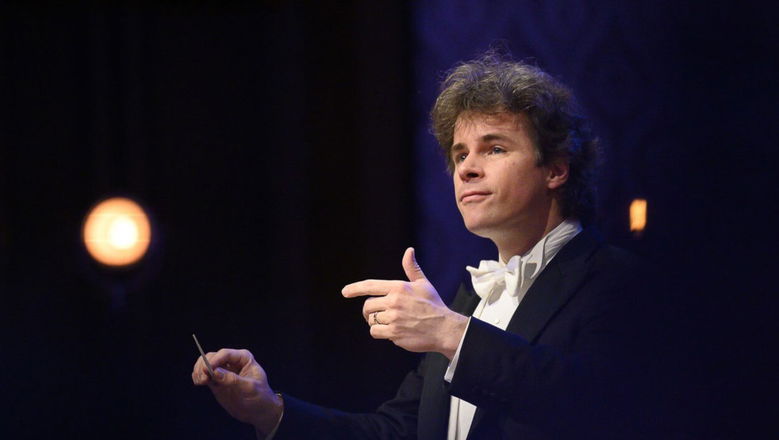
Elena Tsallagova soprano
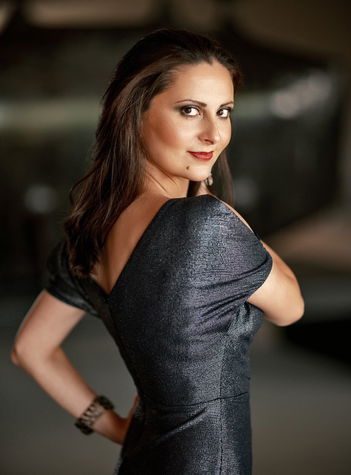
Elena Tsallagova is one of the most sought-after sopranos of her generation, garnering international success for her vocal and dramatic prowess in leading roles from the German, Italian, Czech, Russian and French repertoires. A former member of the Bayerische Staatsoper and Deutsche Oper ensembles, she continues to collaborate with both houses, singing leading roles there.
Elena recently starred in Barry Koskyʼs new production of The Cunning Little Vixen in Munich, as well as Zdenka, in Tobias Kratzer’s new Arabella in Berlin, and as Euxodie, in La Juive at the Grand Théâtre de Genève, for all of which she received universally outstanding reviews. She was invited to sing La Vierge in Honegger’s Jeanne d’Arc at the Salzburg Festival and Ein Deutsches Requiem at the BBC Proms. Upcoming projects include Saint François d’Assise at the Enescu Festival, Der Meistersinger in Berlin, a recording of The Cunning Little Vixen with the Czech Philharmonic and the new production of Die Passagierin in Munich.
Kateřina Kněžíková soprano
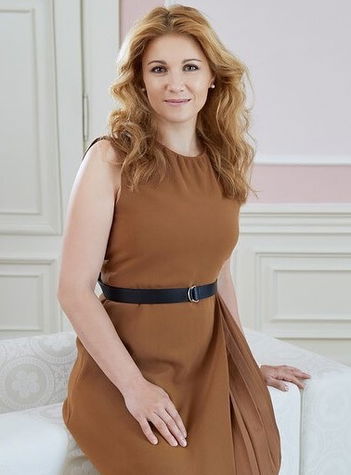
Soprano Kateřina Kněžíková is one of today’s most promising singers. Besides performing opera, she is increasingly devoting herself to the concert repertoire, collaborating with such ensembles as the BBC Symphony Orchestra, the Bamberg Symphony, the Camerata Salzburg, or the Orchestra dellʼAccademia Nazionale di Santa Cecilia. Her core repertoire consists of works by Dvořák, Martinů, and Janáček and the song repertoire. She is a laureate of several vocal competitions and was honoured at the 2018 Classic Prague Awards for the best chamber music performance. She earned a Thalia Award for her outstanding performance in Julietta (Martinů) on the stage of the National Moravian-Silesian Theatre.
In 2006 she became a full-time opera ensemble member at the National Theatre, where she is now appearing in many productions including Rusalka, Così fan tutte, Carmen, The Magic Flute, The Bartered Bride, and The Jacobin. Nonetheless, she sees one of her greatest successes as having been the title role in Káťa Kabanová at the Glyndebourne Opera Festival in 2021.
Jan Martiník bass

Vocal beauty combined with brilliant technique and comic talent have made Jan Martiník, a graduate of the Janáček Conservatoire and of the University of Ostrava, into one of the leading singers of the younger generation. Despite having just recently celebrated his 30th birthday, he already has several competition successes to his credit (victories at the Antonín Dvořák International Competition in Karlovy Vary and at BBC Cardiff Singer of the World, laureate of the Yelena Obraztsova International Singing Competition in Moscow, finalist at Placido Domingo’s singing competition Operalia). He has made guest appearances at Prague’s National Theatre and has held engagements first at the National Moravian-Silesian Theatre in Ostrava, then at Berlin’s Komische Oper and the Staatsoper Unter den Linden.
He has appeared in concert with such famed orchestras as the Czech Philharmonic (for example in the Glagolitic Mass on a European tour and on a floating stage on the Vltava), the Rotterdam Philharmonic, the Staatskapelle Dresden, the BBC Symphony Orchestra, the King’s Consort, and Collegium 1704. He is especially acclaimed in the art song repertoire for the purity of his interpretations of Schubert’s Winterreise and of Dvořák’s Biblical Songs.
Jarmila Vantuchová Balážová mezzo-soprano
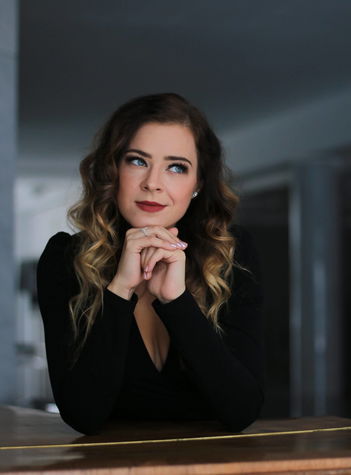
Mezzo-soprano Jarmila Vantuchová performs at theatres and on concert stages. She also devotes herself to the historically informed interpretation of baroque music mainly in collaboration with Collegium 1704. At the National Theatre in Brno she has sung such roles as the Mayor’s Wife in Janáček’s Jenůfa and Polina in Tchaikovsky’s Queen of Spades. Next came the role of Aljeja in Janáček’s opera From the House of the Dead directed by Jiří Heřman and conducted by Jakub Hrůša. Certainly one of her greatest successes last season was her Salzburg Festival debut as Varvara in Leoš Janáček’s Káťa Kabanová, so she is intimately familiar with the operatic works of the famed Moravian composer. She has also been invited recently to collaborate with the Bamberg Symphony, the Warsaw Philharmonic, and LʼOrchestra dellʼAccademia Nazionale di Santa Cecilia. Another curiosity is the use of her recording of the Habanera from the opera Carmen, which appeared as a remix in the final episode of the second season of the American series Emily in Paris on the Netflix streaming platform.
Ondřej Koplík tenor
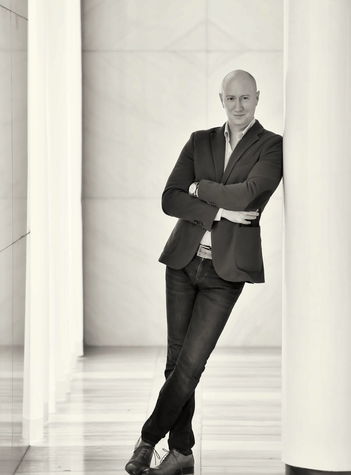
We often see the tenor Ondřej Koplík on Czech opera stages in roles of the classical and romantic repertoire. Having gained experiences in two opera choruses (at the National Theatre in Brno and at Dresden’s Semperoper), he earned a full-time engagement at the Moravian Theatre in Olomouc; since 2017 he has been an opera ensemble member of the National Theatre in Brno. In addition, he also performs frequently at the State Opera, Prague’s National Theatre, the National Moravian-Silesian Theatre in Ostrava, and the Revolving Theatre in Český Krumlov. His collaboration with the F. X. Šalda Theatre in Liberec in 2019 earned him a Thalia Award for his extraordinary performance as Prince Ramiro in Rossini’s opera La Cenerentola.
From time to time, Koplík also expands his opera repertoire to include newer works, as is shown, for example, by his leading role in the world premiere of the Chinese opera Journey to the West. Besides appearing on opera stages, he is a regular guest of such important Czech festivals as Janáček Brno, Smetana’s Litomyšl, and the Dvořák Prague Festival.
Ondřej Koplík, a native of Brno, studied singing at Prague’s Academy of Performing Arts under Magdaléna Hajóssyová, then he further perfected his artistry under the guidance of Matthias Beutlich in Dresden. He has also taken part in masterclasses taught by Bruno de Simone.
Jiří Sulženko baritone
The bass Jiří Sulženko began his musical career as a double bass player, but he soon exchanged his position as an orchestral player at the National Theatre in Prague for a career as a singer, his second field of study at the Prague Conservatoire. Having begun his artistic career in Olomouc and Brno, he returned to the National Theatre in 1991, this time as an operatic soloist. He interrupted his 20-year tenure there for just a few years, when he was engaged as a soloist at various places including the Saarland State Theatre in Saarbrücken.
Besides appearing in traditional roles of the romantic repertoire, he has also earned fame for portraying characters in Janáček operas such as The Forester (The Cunning Little Vixen – with the National Theatre and elsewhere, e.g., in Luxembourg), the Mill Foreman (Jenůfa – at the Salzburg Festival), and the Prison Governor (The House of the Dead – Opéra Bastille, La Scala). He has also appeared in The House of the Dead at the Wiener Festwochen and the Holland Festival under the baton of Pierre Boulez. We find Jiří Sulženko not only on operatic stages, but also appearing at the Prague Spring Festival, Smetana’s Litomyšl, the Brucknerfest in Linz, and elsewhere.
Jiří Brückler baritone

A winner of the National Theatre’s Prize for Artists up to Age 35, Jiří Brückler is admired for his “unique voice, in which we hear lyrical warmth with a shade of melancholy and steely power with dramatic potential”. He studied singing at the Prague Conservatoire under the guidance of Jiří Kotouč and at the Academy of Performing Arts in Prague under Roman Janál. He is a winner of the Antonín Dvořák International Singing Competition in Karlovy Vary in the Junior Category.
At the Opera of the National Theatre and the State Opera, where he has been under engagement since 2012, he has performed key roles in operas ranging from Mozart to Britten. For the role of Rodrigo in Verdi’s Don Carlo, he was nominated for the 2013 Thalia Award. He had already been nominated for that prestigious honour four years earlier for the role of Silvio in Leoncavallo’s Pagliacci as a guest at the F. X. Šalda Theatre in Liberec; later, he sang that role at the Český Krumlov International Music Festival alongside José Cura. He is a regular guest at the J. K. Tyl Theatre in Pilsen, the National Theatre in Brno, and the Bulgarian Opera in Sofia. He also appears in the concert repertoire, collaborating with the leading Czech orchestras.
Veronika Chamolová
Maria Kobielska soprano
Singing the secondary alto role of the Forester’s Wife and the mini-role of an Owl for the same voice type is Maria Kobielska, although she his well known for singing parts for a higher-pitched female voice. At the Prague State Opera, she has sung many roles not only of the traditional romantic repertoire, but also in works by such composers as Zemlinsky and Weis. Later, as a soloist in the opera company of Prague’s National Theatre, where she has been under engagement for over 20 years, she has sung the title role in Janáček’s Cunning Little Vixen and many other parts including the triple role of Málinka, Etherea, and Kunka in Janáček’s Excursions of Mr Brouček and the Smetana roles of Mařenka (The Bartered Bride) and Blaženka (The Secret).
Ms Kobielska also engages in a wealth of concert activity; for example, with the BBC Symphony Orchestra she has appeared at the opening concert of the BBC Proms in London (2007). With the same orchestra and its former chief conductor Jiří Bělohlávek, she sang the triple role mentioned above on a recording on the Deutsche Grammophon label that was honoured with a Midem Classical Award in 2009 at the musical trade fair in Cannes.
Alžběta Vomáčková mezzo-soprano
The Czech Actors’ Association has twice nominated the mezzo-soprano Alžběta Vomáčková for a Thalia Award: in 2013 for the role of Preziosilla (La forza del destino) and in 2017 for the role of Joan of Arc in a Liberec production of Tchaikovsky’s Maid of Orleans. An applicant to the Dance Conservatoire (“they turned me down because I’m too tall”), she studied operatic singing at the Prague Conservatoire (under Brigita Šulcová) and at the Academy of Performing Arts in Prague (under Roman Janál), then in 2018 she made her debut at the prestigious festival in St. Gallen, Switzerland, and in October 2022 at the Theater and der Wien in Austria in The Cunning Little Vixen. In this country, she has appeared in roles including Amneris in Aida, the Witch and the Foreign Princess in Rusalka, and Cherubino in The Marriage of Figaro.
A lover of the Lieder repertoire, she also appears on concert stages accompanied by such ensembles as the Janáček Philharmonic in Ostrava, the Prague Symphony Orchestra, and Musica Florea. In 2016, she gave concerts as far away as China, where she took part in a festival of Czech music alongside Ivan Ženatý, Petr Nouzovský, and Kristina Fialová. Beginning this season, she is also performing in musicals.
Petr Levíček tenor
For many years, the tenor Petr Levíček has been a soloist at the Janáček Opera of the National Theatre in Brno. He learned the fundamental of singing from Vilém Přibyl, and later under the guidance of Pavel Kamas, a soloist with the Janáček Opera and a teacher at the Janáček Academy of Performing Arts, he created many roles by Czech and foreign composers, mostly from the romantic repertoire. With that opera ensemble, he also toured Europe and Japan several times.
Since the 2015/2016 season, he has been a regular guest at the National Moravian-Silesian Theatre in Ostrava, where we will be able to see him this season as Varneman (The Brandenburgers in Bohemia). At the National Theatre in Prague, he has made guest appearances in productions of Julietta and The Excursions of Mr Brouček, and in May 2024 he will sing the role of Jirka at the premiere of a production of Smetana’s opera The Secret.
As a concert artist, he is a regular guest of the international music festival Smetana’s Litomyšl, and of the Saint Wenceslas Festival in Ostrava. In September 2009 he received the honour of singing Janáček’s Ave Maria and Panis Angelicus by César Franck for the visit of Pope Benedict XVI to Brno.
Amálie Motošická
Prague Philharmonic Children’s Choir choir
Today, the Prague Philharmonic Children’s Choir (founded in 1932) is one of the most important Czech artistic ensembles, renowned not just in Europe, but now on five continents. Over the years, the choir has trained thousands of talented children and taught them love for music and the arts. In terms of its traditions and the breadth of its artistic scope, it is a unique artistic institution of its kind not only in the Czech Republic, but also throughout Europe. The choir’s reputation of exceptional artistry is documented by numerous awards and official honours. It is regularly invited to major music festivals and concert tours, it collaborates with top orchestras and operatic stages, and it has realised more than 50 recordings of Czech and foreign music.
The Prague Philharmonic Children’s Choir has its own special sound that captivates listeners on first hearing because of the naturalness, purity, and refinement of the children’s voices. Since the choir’s founding, these characteristics have been an inspiration for many outstanding Czech composers to create works especially for the Prague Philharmonic Children’s Choir.
Jiří Chvála has been at the choir’s helm since 1967, and the choirmaster of the Concert Department is Petr Louženský.
State Opera Chorus
The Prague State Opera was established as an ensemble independent of the National Theatre on 1 April 1992. One of the figures present at its inception was the legendary choirmaster Vladivoj Jankovský, who had been leading the opera chorus for decades. Jankovský was followed successively by other choirmasters including Pavel Pokorný, who fostered the quality of the opera chorus in exemplary fashion for several years. Others who left a significant mark through their work with the State Opera Chorus have included Tvrtko Karlovič, Miriam Němcová, and Michael Keprt. From the 2001/2002 season, Adolf Melichar took over as choirmaster of the Prague State Opera. In 2012, the Prague State Opera and the National Theatre were again merged, and from the 2015/2016 season, it was Melichar who became the chief choirmaster of the State Opera as an autonomous ensemble under the united administration of the National Theatre.
The ensemble’s quality is shown by the offers it receives to give guest performances outside of Prague, such as at summer productions in Gars am Kamp (Austria), at the open-air stage in Hradec Králové with the ensemble Opera Viva from California, or in a project coproduced by the Prague State Opera and the opera festival in Macerata, Italy. For a concert performance of La damnation de Faust by Hector by Berlioz in 2018, the State Opera Chorus was honoured by the Classic Prague Awards together with the opera chorus of the National Theatre.
Adolf Melichar choirmaster
Adolf Melichar is a graduate of the Prague Conservatoire (studying organ under Jiří Ropek and conducting under Přemysl Charvát) and of Prague’s Academy of Performing Arts (conducting under Radomil Eliška and František Vajnar). While still a student, he worked with several non-professional musical ensembles (Kladno Symphony Orchestra, University Artistic Ensemble etc.), with which he also toured abroad successfully. After graduating from the Academy of Performing Arts, he worked as a répétiteur and assistant choirmaster at the Karlín Musical Theatre in Prague. In 1999, he began working at the Prague State Opera, first as a répétiteur, then from the 2001/2002 season as the choirmaster. Since October 2013, he has been the chief choirmaster of the State Opera Chorus.
Jakub Hrůša principal guest conductor
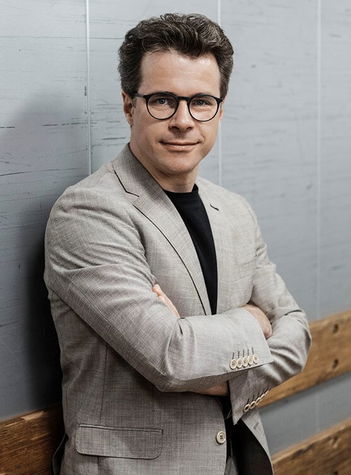
Born in the Czech Republic, Jakub Hrůša is Chief Conductor of the Bamberg Symphony, Music Director Designate of the Royal Opera, Covent Garden (Music Director from 2025), and Principal Guest Conductor of the Czech Philharmonic. He was also formerly Principal Guest Conductor of the Orchestra dell’Accademia Nazionale di Santa Cecilia, the Philharmonia Orchestra, and Tokyo Metropolitan Symphony Orchestra.
He is a frequent guest with the world’s greatest orchestras, including the Vienna, Berlin, Munich and New York Philharmonics; Bavarian Radio, NHK, Chicago and Boston Symphonies; Leipzig Gewandhaus, Lucerne Festival, Royal Concertgebouw, Mahler Chamber and The Cleveland Orchestras; Orchestre Philharmonique de Radio France, and Tonhalle Orchester Zürich. He has led opera productions for the Salzburg Festival (Káťa Kabanová with the Vienna Philharmonic in 2022), Vienna State Opera, Royal Opera House, and Opéra National de Paris. He has also been a regular guest with Glyndebourne Festival and served as Music Director of Glyndebourne On Tour for three years.
His relationships with leading vocal and instrumental soloists have included collaborations in recent seasons with Daniil Trifonov, Mitsuko Uchida, Hélène Grimaud, Behzod Abduraimov, Anne Sofie Mutter, Lisa Batiashvili, Joshua Bell, Yefim Bronfman, Rudolf Buchbinder, Gautier Capuçon, Julia Fischer, Sol Gabetta, Hilary Hahn, Janine Jansen, Karita Mattila, Leonidas Kavakos, Lang Lang, Josef Špaček, Jean-Yves Thibaudet, Yuja Wang, Frank Peter Zimmermann, Alisa Weilerstein and others.
As a recording artist, Jakub Hrůša has received numerous awards and nominations for his discography. Most recently, he received the Opus Klassik Conductor of the Year 2023 prize and the ICMA prize for Symphonic Music for his recording of Bruckner’s Symphony No. 4, and the Preis der Deutschen Schallplattenkritik for his recording of Mahler’s Symphony No. 4, both with Bamberg Symphony. In 2021, his disc of Martinů and Bartók violin concertos with Bamberg Symphony and Frank Peter Zimmermann was nominated for BBC Music Magazine and Gramophone awards, and his recording of the Dvořák Violin Concerto with the Bavarian Radio Symphony and Augustin Hadelich was nominated for a Grammy Award.
Jakub Hrůša studied at the Academy of Performing Arts in Prague, where his teachers included Jiří Bělohlávek. He is President of the International Martinů Circle and The Dvořák Society. He was the inaugural recipient of the Sir Charles Mackerras Prize, and in 2020 was awarded both the Antonín Dvořák Prize by the Czech Republic’s Academy of Classical Music, and – together with Bamberg Symphony – the Bavarian State Prize for Music.
Leoš Janáček
The Cunning Little Vixen
When Leoš Janáček began composing his sixth opera The Cunning Little Vixen (Příhody Lišky Bystroušky), he was 67 years old. He was no longer seen as a provincial folklorist from Brno, as had still been the case just five years earlier. In 1916, Janáček’s standing was changed overnight by the Prague premiere of Jenůfa (Její pastorkyňa); suddenly he had become a leading representative of modern music drama alongside composers a generation younger. Premieres of his works were eagerly anticipated, and Janáček did not cease to surprise audiences with the originality of his musical language, his choices of unusual subject matter, and his genius for dramatic adaptation.
Several coincidences preceded the composing of The Cunning Little Vixen. Graphic prints had begun to appear in newspapers just a few months earlier. The editorial staff of one Brno newspaper lacked enough images submitted for publishing, so the editor-in-chief Jaromír John paid a visit to Stanislav Lolek’s Prague studio in his search for material. Lolek himself did not offer his illustrations of tales about a clever vixen to the newspaper, and when the editor John became aware of them by chance, Lolek had to be persuaded to allow their publication. Rudolf Těsnohlídek then wrote a literary companion to the series of illustrations at the urging of the newspaper publisher. The story came to Janáček’s attention thanks to the hearty laughter of his housekeeper when she was thumbing through the newspaper.
Janáček’s creative spirit had been awakened, and in May 1921, readers of the newspaper Lidové noviny learned that The Cunning Little Vixen would be dressed up in a musical setting. By that time, Janáček was already working with Těsnohlídek’s prose, which had been published in book form. He admitted later that the book made him angry, so he immediately tossed out the first chapter and went to listen to the distinctive language of woodsmen instead. It certainly is no coincidence that at that time he was jotting down the songs of birds and even frogs and writing commentary about them in essays. He took his scientific approach so far as to ask a forester in Hukvaldy to arrange an expedition for him to see a fox’s den. Janáček went there wearing his favourite white suit.
Janáček took the original literary material and adapted his own libretto. He gave Těsnohlídek’s characters greater depth, and he shifted the dramatic emphasis from the stage to the character’s internal reflections on their emotions. He gave precedence to the scenes from the original story where the animal and human worlds overlap. Through their juxtaposition, he created an allegory contrasting the unity and peace of the natural world with the banality and mediocrity of human life. By allowing Sharp-Ears the Vixen to die, he made it possible to hear his opera as a philosophical reflection on life and an expression of his pantheistic faith.
The Cunning Little Vixen is Janáček’s most symphonic opera. The animal world enriched his musical language and enabled him to conceive whole scenes in terms of ballet and pantomime. Sometimes the pithy rhythmic units imitate animal sounds, and through their onomatopoetic potential, they shift the dramatic potential to the orchestra, as is most apparent in the ballet scenes and interludes. A number of small roles for forest creatures are composed for children’s voices. Like in his previous opera Kaťa Kabanová, nature again speaks through wordless choral singing.
The score of The Cunning Little Vixen is sometimes described as impressionistic. When Janáček was composing the opera, he is known to have been captivated by the music of Claude Debussy. He had attended a performance of the opera Pelléas et Mélisande, and he subjected Debussy’s symphonic sketches La mer to detailed analysis. The use of the whole-tone scale, so typical of Debussy’s musical language, seems in Janáček’s case to be a consequence of the inspiration of Moravian folk music with its plentiful use of the Lydian mode.
In his correspondence, Janáček called The Cunning Little Vixen a girls’ novel. In it, at the threshold of the age of seventy, he created one of his most youthful works. In his own words, he composed it “for the joys and sorrows of advanced years.” Milan Kundera admired the opera for its “elegiac nostaglia”, which it found “in the chatter of two old gentlemen in a pub; in the death of a poor animal; in the unrequited love of a schoolteacher kneeling before a sunflower.” The work’s message is a humble bowing down of a man with a wealth of life experience before the all-embracing order of nature, necessary components of which are birth, death, and the renewal of life in successive generations: in the concluding scene, face to face with new generations of forest creature, the forester lets his rifle (a symbol of the human subjugation of nature) fall from his shoulder, and he recedes into the background to the sounds of one of Janáček’s most beautiful orchestral odes. It is no wonder that Janáček wanted this scene played at his own funeral.
The opera was premiered on 3 November 1924 at Brno’s Theatre on the Ramparts (today the Mahen Theatre) with František Neumann conducting. The first performance at Prague’s National Theatre followed soon afterwards (18 May 1925, Otakar Ostrčil conducting). The opera crossed international borders thanks to Max Brod’s controversial German adaptation, premiered in Mainz on 13 February 1927 with Paul Breisach conducting. A production at Berlin’s Comic Opera directed by Walter Felsenstein was given 218 performances (premiered on 30 May 1956 and conducted by Václav Neumann), starting the opera on its way to a permanent place on stages around the world. The score was first printed by Universal Edition in 1961, and Jiří Zahrádka prepared a critical edition in 2010. Today, the opera is routinely performed in the original language, so the Vixen’s charmingly mixed-up Moravian dialect has become a world language at least on the opera stage.
In the 1930s, Václav Talich prepared an orchestral suite from the opera that has made its own way in the concert hall. In arranging the suite, Talich made well-intentioned alterations to Janáček’s orchestration to make the sound more typically romantic. Half a century later, Charles Mackerras restored Janáček’s original scoring to the suite arrangement.
The Czech Philharmonic has close ties to The Cunning Little Vixen. In 1979/80, the orchestra made a superb recording of the opera under the baton of Václav Neumann with Magdaléna Hajóssyová, Gabriela Beňačková, and Richard Novák in the lead roles. Today’s performance celebrates the opera’s youthful age of 100 years on the occasion of the centenary of the first performance in Brno.